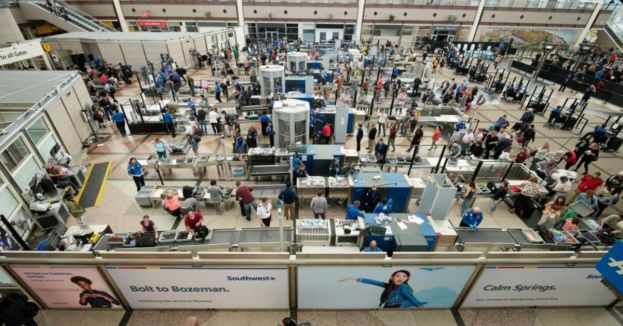According to flight-tracking website FlightAware, more than 1,200 flights were canceled as of 2 p.m EST Saturday. That followed more than 2,300 cancellations on Friday. Sunday and Monday saw an additional 4200 flights canceled combined, leaving many travelers stranded in vacation destinations trying to get home.
Delta Air Lines suffered the most among U.S. airlines, with over 240 flights, accounting for 9% of its operations, eliminated on Saturday. Hartsfield-Jackson International Airport in Atlanta, where Delta is based and has its largest hub, was heavily affected by the travel delays. On Saturday, 5% of the flights there were canceled, and another 7% were delayed.
WATCH: THE AG'S RAN ON "GETTING" TRUMP![]()
Delta wrote in an email to The Associated Press that Saturday’s cancellations were due to bad weather and "air traffic control actions," noting it's trying to cancel flights at least 24 hours in advance this Memorial Day weekend.
WATCH: THE TIMING OF TRUMP'S TRIAL, WHY NOW?![]()
On Thursday, Delta announced on its website that from July 1 to Aug. 7, it would reduce service by about 100 daily departures, primarily in parts of the U.S. and Latin America that Delta frequently serves.
"More than any time in our history, the various factors currently impacting our operation — weather and air traffic control, vendor staffing, increased COVID case rates contributing to higher-than-planned unscheduled absences in some work groups — are resulting in an operation that isn't consistently up to the standards Delta has set for the industry in recent years," said Delta's Chief Customer Experience Officer Allison Ausband in a post.
SECURITY IN OVERDRIVE: HOME DEPOT'S UNCONVENTIONAL RESPONSE TO NEW YORK'S CRIME CRISIS![]()
Airlines and tourist destinations are anticipating tremendous crowds this summer as travel restrictions ease and pandemic fatigue overcomes the lingering fear of contracting COVID-19 during travel.
Many forecasters predict the number of travelers will match or even surpass levels in the good-old, pre-pandemic days. However, airlines have thousands fewer employees than they did in 2019, and that has at times contributed to widespread flight cancellations.
Those who are only now booking travel for the summer are experiencing the sticker shock.
Domestic airline fares for summer are averaging more than $400 for a round trip, 24% higher than this time in 2019, before the pandemic, and a robust 45% higher than a year ago, according to travel-data firm Hopper.
WHO'S UP NEXT? BALTIMORE MAYOR NEXT TO PLAY IDENTITY POLITICS...![]()
"The time to have gotten cheap summer flights was probably three or four months ago," said Scott Keyes, who runs Scott's Cheap Flights site.
Internationally, fares are also up from 2019, but only 10%. Prices to Europe are about 5% cheaper than before the pandemic — $868 for the average round trip, according to Hopper. Keyes said Europe is the best travel bargain out there. That is partly due to some travelers' concerns about traveling to the region due to Russia's war in Ukraine, which means Western Europe is a buyer's market for the moment, according to CBS News' Peter Greenberg.
THREAT OR PROMISE? DEMOCRATIC HOPEFUL'S CONTROVERSIAL MESSAGE: "DIE MAGA DIE"![]()
Airlines blame the steeper fares on jet fuel roughly doubling in price over 2019. It's more than that, however. The number of flights has not returned to pre-pandemic levels even though demand for travel is surging.
"We have more travelers looking to book fewer seats, and each of those seats is going to be more expensive for airlines to fly this summer because of jet fuel," says Hopper economist Hayley Berg.








 Discover alternative ideas that will make you think
Discover alternative ideas that will make you think Engage in mind bending debate
Engage in mind bending debate Earn points, rise in rank, have fun
Earn points, rise in rank, have fun


